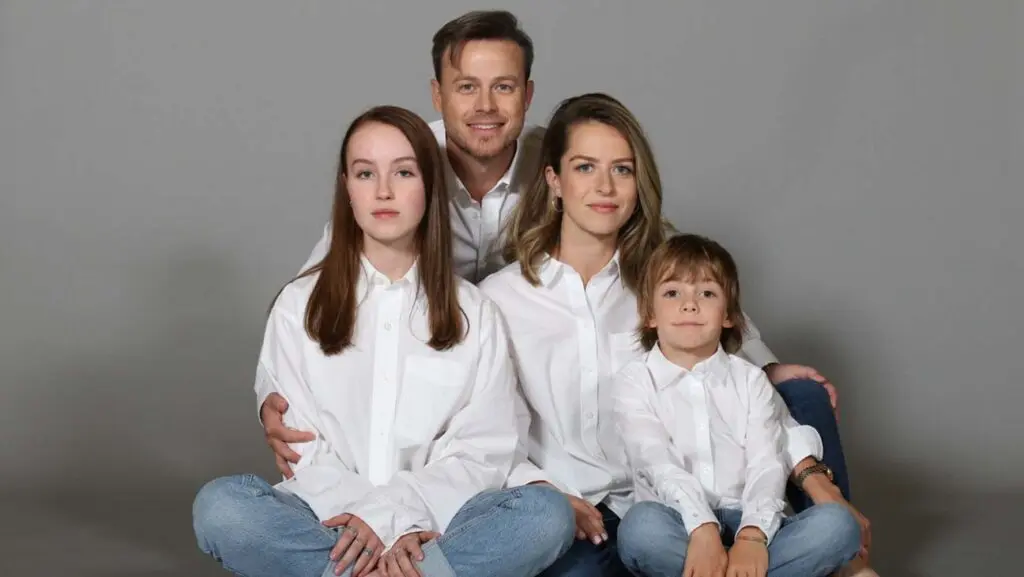Summary
The Guide to the Perfect Family is a compelling dramedy that perfectly captures the struggle and pressures of parenting in the modern-day: great cast, engaging story, clear message.
What does a perfect family mean to you? Is it a family who enjoys watching football games together every evening? The traditional family, who runs a farm and eats a homemade meal every day? A prestigious family who runs a successful family business and receives the perfect education? Or perhaps, a savvy family who often goes on road trips and daily life activities to upload it on social media?
The Guide to the Perfect Family (originally known as Le Guide de la Famille parfaite) is a French-language dramedy that unfolds the struggle and pressures of parenting in modern society, glorifying success and social media image. It perfectly captures the issues and pitfalls of a parent who earnestly tries to gives their best for their children.
Directed by Canadian director Ricardo Trogi, it offers an interesting screenplay, engaging stories, and a great cast. The movie starts with parents meeting at school. Each parent relentlessly demands and debates about the perfect system to educate their children, from using high-end technology, to the selections of snacks, to the colors of uniforms to the enrollment of trans students.
Later, we get to see a picture-perfect family who lives in Quebec. Two parents, two children, big house, great job, outstanding children performance. It perfectly visualizes the standard of a perfect family in a big city.
Louis Morissette portrays Martin Dubois, a father who obsesses over perfections, full of pride for his family, and a workaholic. He assigns his eldest daughter, Rose (Emilie Bierre), to accomplish numerous things. From hockey to dance; bringing in an English and Math tutor. He routinely checks on her school’s portal for her grades and calls her ‘his champ.” Little did he know that Rose does not want to be perfect; she wants to be understood.
Meanwhile, Catherine Chabot plays a modern-day wife, Marie-Soleil, who obsesses over updating her social media with a series of daily family activities using the hashtag #Fabolusfamily. She maintains a gluten-free lifestyle, does the house chores diligently, keeps her body in shape, and tries to keep up with society. But deep inside, she has her struggles. And there we have Mathis, the youngest member of the family, who can’t even stand still and always has a reason to throw his meals.
As the story progresses, we get to know that Dubois’s perfect family runs with deeper issues. The conflict rises when Martin struggles to get his work promotion and later finds out about Rose’s cheating and drug use at school.
It turns out all the perfect straights A+ were all results of her buying previous exam papers. The disappointment marks the beginning of the pitfall for the perfect family. Martin tries to overcome the arousing situation at home while balancing his turbulent work life.
And that’s a perfect time for us to say hello to Caroline (Isabelle Guerard), his ex-wife, and Rose’s biological mother. She’s a professional dancer who often goes on tour, barely present in Rose’s life after the divorce. She later tries to help Martin on dealing with Rose amidst their tempting relationship.
The Guide to the Perfect Family is a mainstream family drama concept but what makes it engaging is the rawness of the story. There’s nothing overdramatic or cliche about it. Every character acts realistically yet sentimental enough to make you empathize with them. I love how the movie shows the depth of the issues lightly.
From mental health issues surrounding the younger generation due to the high pressure and demand, parental burnout, the importance of healthy communication, even promoting the beauty of being ‘average,’ and vulnerabilities amidst the high standard and perfect society.
One more thing that is interesting about the movie is the dialogue between each character. Something is enchanting about the way the dialogue is written. It is so fun to know what they’re saying. Everything is solidly and effectively written. You don’t need to guess what’s happening inside of each characters’ head nor the reason behind their actions.
It is all expressed through their dialogue and emotions. The selections of music and scoring also strengthen the scenes by providing effective ambiances to build the story.
Overall, it is a great, comforting movie that you can relate to with a crystal clear message, especially if you’re stepping into the world of parenting. But if you’re expecting the film to offer you the answer on how to build your perfect family, then you better stop.
The writer greatly emphasizes this throughout the movie. No matter how many articles, journals, parenting 101 books you have read, or how much great advice you receive, it all comes down to the momentum and experience. Nobody is born as a parent. They all learn to become one along the way. It is a life-long journey.
In the beginning, I asked what ‘perfect family’ means to you? Well, I would suggest the perfect family is the one who embraces each other’s imperfections yet compromises to live and work it out somehow.




